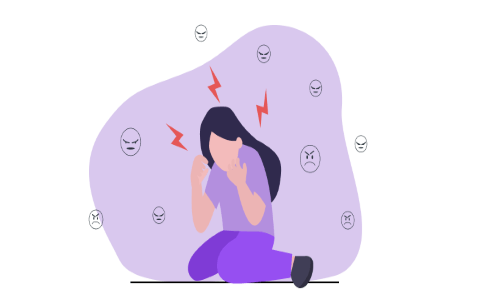loading...

by Tim Cassidy | Oct 21, 2024 | Live Events
 Chronic pain is more than a physical experience—it affects emotional and psychological well-being as well. In this workshop, therapists will explore the profound impact of chronic pain and how it intersects with co-morbid psychological conditions such as anxiety and depression. Participants will gain valuable insights into the brain-body connection, focusing on the brain’s role in pain perception and the influence of emotional and psychological factors. Therapists will also learn to distinguish between structural and neural circuit-related pain and be introduced to evidence-based interventions, including Pain Reprocessing Therapy (PRT), Acceptance and Commitment Therapy (ACT), and Cognitive Behavioral Therapy (CBT), for treating chronic pain in their clients.
Chronic pain is more than a physical experience—it affects emotional and psychological well-being as well. In this workshop, therapists will explore the profound impact of chronic pain and how it intersects with co-morbid psychological conditions such as anxiety and depression. Participants will gain valuable insights into the brain-body connection, focusing on the brain’s role in pain perception and the influence of emotional and psychological factors. Therapists will also learn to distinguish between structural and neural circuit-related pain and be introduced to evidence-based interventions, including Pain Reprocessing Therapy (PRT), Acceptance and Commitment Therapy (ACT), and Cognitive Behavioral Therapy (CBT), for treating chronic pain in their clients.
This workshop goes beyond theory, offering practical tools and strategies that therapists can implement immediately in their practice. Through case studies, experiential exercises, and group discussions, participants will learn how to tailor pain management approaches that address both the physical and psychological needs of their clients. The integration of various therapeutic modalities will empower therapists to provide holistic care, choosing the most effective interventions for clients with chronic pain and related psychological conditions. By the end, participants will be equipped to enhance their clients’ quality of life through a comprehensive, mind-body approach to pain treatment.
Attendance and Location Details
Date and Time
**This is a 6-CE online seminar delivered virtually in real-time via an industry-standard webinar platform**
Friday, June 27, 2025 9:00am to 4:30pm CST / 10:00am to 5:30pm EST / 7:00am to 2:30pm PST
*Live Webinar Attendees: Zoom link and course materials will be made available to you 24-48 hours prior to event date
Agenda:
9:00 AM – 9:10 AM: Introduction and Overview
9:10 AM – 10:00 AM: Understanding Chronic Pain in the Brain and Body
10:00 AM – 11:00 AM: The Causes of Chronic Pain
11:00 AM – 11:15 AM: Break
11:15 AM – 12:00 PM: Structural vs. Neuroplastic Pain
12:00 PM – 1:00 PM: Lunch Break
1:00 PM – 2:00 PM: Co-Morbid Psychological Conditions and Chronic Pain
2:00PM – 2:30 PM: Treatment Modalities for Chronic Pain
2:30 PM – 2:45 PM: Break
2:45 PM – 4:20 PM: Treatment Modalities Continued
4:20PM – 4:30 PM: Closing Thoughts and Q&A
Objectives:
This training will provide participants clinical knowledge and tools to:
a). After completing this training, participants will be able to describe the common causes of chronic pain.
b). After completing this training, participants will be able to explain the mechanisms of pain within the brain and body.
c). After completing this training, participants will be able to define structural and neuroplastic pain.
d). After completing this training, participants will be able to describe the common comorbid psychological conditions associated with chronic pain.
e). After completing this training, participants will be able to understand how different treatment modalities such as CBT, ACT, and PRT conceptualize chronic pain.
f). After completing this training, participants will be able to utilize somatic tracking with chronic pain clients.
Target Audience:
The target audience for this event includes psychologists, social workers, counselors, MFT’s, psychiatrists and other clinical mental health professionals.
Instructional Level: Intermediate
Instructor(s): Corey Petersen, PhD, LCMFT
Material Author(s): Corey Petersen, PhD, LCMFT
Dr. Corey Petersen is a communication specialist and the owner of Communication and Connection Therapy. She completed her Ph.D. in Communication Studies at the University of Kansas, where her research focused on psychotherapeutic language and communication ethics. Prior to her Ph.D., Corey earned Master’s degrees in Marriage and Family Studies and Professional Communication. In addition to her formal education, she has completed training in four Gottman Method programs (Level 1, Level 2, Seven Principles, and Bringing Baby Home), Collaborative Language Couples Therapy, and has further training with various other relationship-oriented theories and models. Corey has been teaching collegiately for over 9 years in both the psychology and communication fields. When she is not teaching, she meets with clients in her private practice.
For additional information about this course, the instructors, or the material authors, please contact Content Assistance at content@onlinececredits.com.
Course Materials & Delivery Method:
- Course materials (including the link to view the scheduled live webinar) are made available to all registered attendees 24-48 hours before the event start time.
- This training is interactive and provides opportunities to ask direct questions to the trainer as well as request immediate help from staff if needed. The attendee will view the presentation in real-time from their connected device via an industry-standard internet webinar platform.
CE Approvals:

Online CE Credits has been approved by NBCC as an Approved Continuing Education Provider, ACEP No. 6795. Programs that do not quality for NBCC credit are clearly identified. Online CE Credits is solely responsible for all aspects of the programs.

Mind Works Professional Education, Inc. DBA Online CE Credits, #1974, is approved as an ACE provider to offer social work continuing education by the Association of Social Work Boards (ASWB) Approved Continuing Education (ACE) program. Regulatory boards are the final authority on courses accepted for continuing education credit. ACE provider approval period: July 23, 2024 – July 23, 2025. Social workers completing this course receive [see advertisement] live interactive webinar continuing education credits.
Other Helpful Information:
- Registration Deadline – please register at any time prior to the advertised start time of this live webinar training.
- Refund & Cancellation Policy – you may review this policy at any time by clicking here.
- Accessibility Accommodations – if you require a reasonable accommodation for any reason, please email your request to cc@onlinececredits.com
- Course Completion Requirements – complete the code word attendance quiz by 1.) selecting the correct beginning and/or ending code words, 2.) inputting actual time signed in and time signed out, and 3.) signing your name attesting to your full attendance. Then, complete the course evaluation.
- Posttest Requirements (***not applicable for most live webinars) – You must answer 80% or more of the Quiz questions correctly to pass. If you fail to pass the first time, you may attempt the quiz again until you are able to pass with a score of 80% or better. Quizzes are graded instantly and automatically by the learning management system once your attempt is submitted.
- Certificate of Completion – certificates of completion are automatically generated – downloadable from your Dashboard and emailed to you – once you complete the code word attendance quiz and the course evaluation. Please complete these items to receive your certificate immediately after the live webinar training is concluded.
- Live Webinar Registration – Please select the proper admission ticket in the banner at the top of this page, and follow the prompts. You will be asked either to login with your existing account (if you have learned with us before) or to establish a new user account durng the registration process if this is your first training with us.
- System Requirements –
- Recommended Devices: Desktop, Laptop, or Tablet computer. (Note: Our platform is mobile responsive and may be fully accessed from a connected smartphone).
- Suggested Browsers: Updated version of Google Chrome, Microsoft Edge, or Apple Safari.
- Recommended Network: Home wifi, ethernet, or a public wifi with VPN (Note: agency or corporate networks are often equipped with restrictive firewalls that may adversely impact your experience on our platform).
- Recommended speed/bandwidth: Minimum download speed > 20Mbps and minimum upload speed > 6Mbps.

by Tim Cassidy | Oct 5, 2024 | Live Events
 There are quite a few therapy approaches with a lot of clout in the evidence-based category, especially as paired with the treatment of certain disorders. But few pack the punch that ERP packs for the treatment of OCD and anxiety disorders. If you treat OCD or other stubborn, treatment resistant anxiety, ERP is a must-have tool you’ll need to master if you desire effective outcomes with those clients tortured by persistent obsessions, compulsions, or anxious thoughts.
There are quite a few therapy approaches with a lot of clout in the evidence-based category, especially as paired with the treatment of certain disorders. But few pack the punch that ERP packs for the treatment of OCD and anxiety disorders. If you treat OCD or other stubborn, treatment resistant anxiety, ERP is a must-have tool you’ll need to master if you desire effective outcomes with those clients tortured by persistent obsessions, compulsions, or anxious thoughts.
Join this full day intensive on Exposure & Response Prevention (ERP) therapy, designed to blend foundational theory with practical tools you can immediately apply in your work with clients. ERP is the gold-standard, evidence-based treatment for OCD and is equally effective for treating anxiety disorders.
We’ll begin with an overview of OCD—serving as an introduction for some and a refresher for others—before diving into ERP: what it is, how it works, and why it’s so effective for many people. Join us for a dynamic learning experience to enhance your clinical skills with ERP.
Attendance and Location Details
Date and Time
**This is a 6-CE online seminar delivered virtually in real-time via an industry-standard webinar platform**
Friday, May 30, 2025
9am-4:30pm CST / 10am-5:30pm EST / 7am-2:30pm PST
*Zoom link will be emailed to you 24-48 hours prior to event date
Agenda:
9:00am – 10:00am: OCD 101
10:00am – 11:00am: ERP Basics & Crucial Concepts
11:00am – 11:15am: BREAK
11:15am – 12:00pm: How ERP Works
12:00pm – 1:00pm: LUNCH
1:00pm – 1:45pm: How We Start ERP
1:45pm – 2:45pm: How We Do ERP
2:45pm – 3:00pm: BREAK
3:00pm – 3:10pm: How We Wrap Up ERP
3:10pm – 4:00pm: Case Studies
4:00pm – 4:10pm: Resources & Conclusion
4:10 – 4:30pm: Q&A
Objectives:
This training will provide participants clinical knowledge and tools to:
a). After completing this training, participants will be able to assess for obsessive-compulsive disorder (OCD).
b). After completing this training, participants will be able to distinguish between OCD & anxiety disorders.
c). After completing this training, participants will be able to explain the OCD cycle.
d). After completing this training, participants will be able to explain the basic principles of Exposure & Response Prevention (ERP) therapy.
e). After completing this training, participants will be able to apply ERP to treat OCD & anxiety disorders.
f). After completing this training, participants will be able to formulate an ERP-based treatment plan, including creating a hierarchy & ERP exercises.
Target Audience:
Mental Health Clinicians & Therapists, including Social Workers, Psychologists, Marriage & Family Therapists, and Licensed Professional Counselors.
Instructional Level: Intermediate
Instructor(s): April Kilduff, MA, LCPC, LPCC, LMHC
Material Author(s): April Kilduff, MA, LCPC, LPCC, LMHC
April Kilduff, MA, LCPC, LPCC, LMHC is a Therapist & Clinical Training Specialist with her own private practice & also contracted with NOCD. Previously she worked in OCD/Anxiety IOP/PHPs in the Ascension & Rogers Behavioral Health Hospitals in Chicago. April also served as a Clinical Director at a group practice where she trained staff on treating OCD with Exposure & Response Prevention (ERP). OCD has great treatment options, meaning people really can get better. Doing ERP allows her to do clinical work as well as exercise her creativity to come up with effective ERPs. Additionally, she enjoys working with autistic adults struggling with OCD & was identified as autistic herself in 2022. When not working, you can find her at home with her 2 cats, reading, taking photos & traveling the world.
For additional information about this course, the instructors, or the material authors, please contact Content Assistance at content@onlinececredits.com.
Course Materials & Delivery Method:
- Course materials (including the link to view the scheduled live webinar) are made available to all registered attendees 24-48 hours before the event start time.
- This training is interactive and provides opportunities to ask direct questions to the trainer as well as request immediate help from staff if needed. The attendee will view the presentation in real-time from their connected device via an industry-standard internet webinar platform.
CE Approvals:

Online CE Credits has been approved by NBCC as an Approved Continuing Education Provider, ACEP No. 6795. Programs that do not quality for NBCC credit are clearly identified. Online CE Credits is solely responsible for all aspects of the programs.

Mind Works Professional Education, Inc. DBA Online CE Credits, #1974, is approved as an ACE provider to offer social work continuing education by the Association of Social Work Boards (ASWB) Approved Continuing Education (ACE) program. Regulatory boards are the final authority on courses accepted for continuing education credit. ACE provider approval period: July 23, 2024 – July 23, 2025. Social workers completing this course receive [see advertisement] live interactive webinar continuing education credits.
Other Helpful Information:
- Registration Deadline – please register at any time prior to the advertised start time of this live webinar training.
- Refund & Cancellation Policy – you may review this policy at any time by clicking here.
- Accessibility Accommodations – if you require a reasonable accommodation for any reason, please email your request to cc@onlinececredits.com
- Course Completion Requirements – complete the code word attendance quiz by 1.) selecting the correct beginning and/or ending code words, 2.) inputting actual time signed in and time signed out, and 3.) signing your name attesting to your full attendance. Then, complete the course evaluation.
- Posttest Requirements (***not applicable for most live webinars) – You must answer 80% or more of the Quiz questions correctly to pass. If you fail to pass the first time, you may attempt the quiz again until you are able to pass with a score of 80% or better. Quizzes are graded instantly and automatically by the learning management system once your attempt is submitted.
- Certificate of Completion – certificates of completion are automatically generated – downloadable from your Dashboard and emailed to you – once you complete the code word attendance quiz and the course evaluation. Please complete these items to receive your certificate immediately after the live webinar training is concluded.
- Live Webinar Registration – Please select the proper admission ticket in the banner at the top of this page, and follow the prompts. You will be asked either to login with your existing account (if you have learned with us before) or to establish a new user account durng the registration process if this is your first training with us.
- System Requirements –
- Recommended Devices: Desktop, Laptop, or Tablet computer. (Note: Our platform is mobile responsive and may be fully accessed from a connected smartphone).
- Suggested Browsers: Updated version of Google Chrome, Microsoft Edge, or Apple Safari.
- Recommended Network: Home wifi, ethernet, or a public wifi with VPN (Note: agency or corporate networks are often equipped with restrictive firewalls that may adversely impact your experience on our platform).
- Recommended speed/bandwidth: Minimum download speed > 20Mbps and minimum upload speed > 6Mbps.

by Windy Dryden, PhD, ScD | Oct 3, 2024 | Uncategorized
 Date course created: September 2024
Date course created: September 2024
Believe it or not, an entire clinical community exists around SST, or Single Session Therapy. It is a very direct and solution-oriented way to think about and approach mental health therapy. It is a very strategic model, built to provide value and resolution for the client within a single session. Why is this a good thing? Well, some clients are busy or resistant to therapy (for cultural or other reasons), and may not even entertain going to therapy if they think about coming for many sessions in a row. This means we have a unique opportunity to extend important services to a deserving population and hard-to-reach group of people.
In this “single session” workshop, I will discuss the nature of single-session therapy (SST) and its foundations. I will then present the features of the single-session therapy mindset and the practical strategies that flow from this mindset. I will also do a live demonstration of SST with a volunteer willing to discuss a personal issue that they wish to resolve. Finally, I will also discuss common reservations therapists have about SST
**This is a 2.5-CE noninteractive, self-paced online video course delivered in home study format via an industry-standard online learning platform**
Agenda:
00:00 – 00:30: Understanding Single Session Therapy (SST): Concept, Modalities and Mindset
00:30 – 01:00:SST Practice: Establishing an effective working alliance
01:00 – 01:30: Communication techniques
01:30 – 01:45: Break
01:45 – 02:30: Client Assessment
02:30 – 03:00: Creating an Action Plan
Objectives:
This training will provide participants clinical knowledge and tools to:
a). After completing this training, participants will be able to describe the nature of single-session therapy.
b). After completing this training, participants will be able to learn and describe the main features of the single-session therapy mindset.
c). After completing this training, participants will be able to learn and respond to three reservations therapists have about SST.
Target Audience:
The target audience for this course includes licensed psychologists, social workers, counselors, MFT’s, and other licensed clinical mental health professionals.
Instructional Level: Intermediate
Instructor(s): Windy Dryden, PhD, ScD
Material Author(s): Windy Dryden, PhD, ScD
Windy Dryden is Emeritus Professor of Psychotherapeutic Studies at Goldsmiths University of London. He is a leading UK practitioner and trainer in the field of Cognitive Behavior Therapy (CBT) and is best known for his work in Rational-Emotive Cognitive Behavior Therapy (RECBT), a leading CBT approach. He has been working in the field of counseling and psychotherapy since 1975 and was one of the first in Britain to be formally trained in CBT. His greatest goal is to disseminate SST/ONEplus Therapy as far and wide as possible to help clinicians help their clients.
For additional information about this course, the instructors, or the material authors, please contact Content Assistance at content@onlinececredits.com.
Course Materials & Delivery Method:
- Course materials – The course is composed of a recorded presentation and written materials (e.g. a slide deck and/or other worksheets, manuals, or handouts as provided by the instructor). The slide deck and any additional worksheets or handouts (as provided by the instructor) are made available inside the Lesson module after a course is purchased.
- Delivery Method – this course is a recorded asynchronous, self-paced webinar training, and there is no access time limit or due date to complete it once enrolled. The enrolled learner will stream the recorded presentation and view the materials from their internet connected device via an industry-standard online learning platform.
CE Approvals:

Online CE Credits has been approved by NBCC as an Approved Continuing Education Provider, ACEP No. 6795. Programs that do not quality for NBCC credit are clearly identified. Online CE Credits is solely responsible for all aspects of the programs.

Mind Works Professional Education, Inc. DBA Online CE Credits, #1974, is approved as an ACE provider to offer social work continuing education by the Association of Social Work Boards (ASWB) Approved Continuing Education (ACE) program. Regulatory boards are the final authority on courses accepted for continuing education credit. ACE provider approval period: July 23, 2024 – July 23, 2025. Social workers completing this course receive [see advertisement] asynchronous distance learning continuing education credits.
Other Helpful Information:
- Refund & Cancellation Policy – you may review this policy at any time by clicking here.
- Accessibility Accommodations – if you require a reasonable accommodation for any reason, please email your request to cc@onlinececredits.com
- Course Completion Requirements – 1.) View the entire Lesson module (accessible from the main course page), to include the embedded and/or linked presentation video(s), slide deck, additional materials, and/or links to any shared video clip(s) that may have been edited from the presentation video(s) to comply with copyright laws. 2.) Click into the Quiz module accessible from either the main course page or the Lesson page and complete the Quiz with an 80% or better pass rate. 3.) Complete the course evaluation – you’ll be sent to the evaluation automatically once you successfully pass the Quiz.
- Posttest Requirements – you must answer 80% or more of the Quiz questions correctly to pass. If you fail to pass the first time, you may attempt the quiz again until you are able to pass with a score of 80% or better. Quizzes are graded instantly and automatically by the learning management system once your attempt is submitted.
- Certificate of Completion – certificates of completion are automatically generated – downloadable from your Dashboard and emailed to you – once you view the Lesson materials and complete the Quiz and the course evaluation.
- How to Enroll – Login to the website first if you already have a user account. If not, you will create your permanent user account login information during course enrollment. Select the appropriate course library using the top menu of the website. Once inside your chosen course library, find and select your desired course to be taken to the main course page. Click the button on the top banner to enroll. When the order window pops up, enter your details and place your order. You will be emailed an enrollment confirmation message, and you’ll be sent to a landing page instructing you how to begin your newly enrolled course.
- System Requirements –
- Recommended Devices: Desktop, Laptop, or Tablet computer. (Note: Our platform is mobile responsive and may be fully accessed from a connected smartphone).
- Suggested Browsers: Updated version of Google Chrome, Microsoft Edge, or Apple Safari.
- Recommended Network: Home wifi, ethernet, or a public wifi with VPN (Note: agency or corporate networks are often equipped with restrictive firewalls that may adversely impact your experience on our platform).
- Recommended speed/bandwidth: Minimum download speed > 20Mbps and minimum upload speed > 6Mbps.

by Stephanie Risinger, MS, LCMFT | Sep 27, 2024 | Uncategorized
Date course created: September 2024
 The “Perinatal Mental Health Disorders: Early Identification & Treatment Tools” course provides mental health professionals with essential training in identifying and treating perinatal disorders. This 2.5 CE course covers risk factors, diagnoses, and treatment strategies for postpartum depression and anxiety. Ideal for clinicians working with families in the perinatal stage, this course equips you with practical tools to assess and support clients during pregnancy and postpartum, improving therapeutic outcomes.
The “Perinatal Mental Health Disorders: Early Identification & Treatment Tools” course provides mental health professionals with essential training in identifying and treating perinatal disorders. This 2.5 CE course covers risk factors, diagnoses, and treatment strategies for postpartum depression and anxiety. Ideal for clinicians working with families in the perinatal stage, this course equips you with practical tools to assess and support clients during pregnancy and postpartum, improving therapeutic outcomes.
Perinatal mental health disorders have historically been overlooked or disregarded as “baby blues,” but we can no longer ignore this underserved population. 1 in 5 women now experience significant symptoms of depression and/or anxiety during pregnancy or postpartum. Perinatal mental health disorders have unique risk factors, symptoms, and treatments not often discussed in graduate school mental health programs and not specifically listed in the DSM-5-TR, despite the fact that there is significant research around these mental health challenges. Focus and attention in this area of mental health treatment is imperative to ensure we are providing whole self care for young women and families!
In this workshop you will learn about prevalence, risks factors, specific perinatal mental health diagnoses, commonly used assessment tools, and basic treatment strategies to begin effectively serving families in the perinatal period. If you work with individuals or families in the childbearing years, this workshop will significantly increase your understanding of their most critical challenges.
**This is a 2.5-CE noninteractive, self-paced online video course delivered in home study format via an industry-standard online learning platform**
Agenda:
00:00 – 00:30: Risk Factors and Prevalence
00:30 – 01:30: Specific Perinatal Mental Health Disorders
01:30 – 02:30: Treatment Basics
Objectives:
This training will provide participants clinical knowledge and tools to:
a). Identify at least two risk factors specific to perinatal mental health disorders.
b). Name at least two perinatal mental health diagnoses and their symptoms.
c). Utilize at least three specific parts of the DSM-5-TR for the purposes of documentation and insurance billing.
d). Identify at least two commonly used assessment tools and how to integrate them into the practice of therapy.
e). Understand and describe two basic treatment strategies for perinatal mental health disorders.
Target Audience:
The target audience for this course includes licensed psychologists, social workers, counselors, MFT’s, and other licensed clinical mental health professionals.
Instructional Level: Intermediate
Instructor(s): Stephanie Risinger, MS, LCMFT
Material Author(s): Stephanie Risinger, MS, LCMFT
Stephanie Risinger is a Licensed Clinical Marriage and Family Therapist in Kansas and a Licensed Marital and Family Therapist in Missouri. Stephanie specializes in Perinatal Mental Health in her private practice in Overland Park, KS. She has 15 years of clinical experience, five of which she has worked primarily with the perinatal population. Stephanie has completed a certificate in Perinatal Mood and Anxiety Disorders through Postpartum Support International and Advanced Training in Perinatal Mental Health through the Centimano Counseling training program.
For additional information about this course, the instructors, or the material authors, please contact Content Assistance at content@onlinececredits.com.
Course Materials & Delivery Method:
- Course materials – The course is composed of a recorded presentation and written materials (e.g. a slide deck and/or other worksheets, manuals, or handouts as provided by the instructor). The slide deck and any additional worksheets or handouts (as provided by the instructor) are made available inside the Lesson module after a course is purchased.
- Delivery Method – this course is a recorded asynchronous, self-paced webinar training, and there is no access time limit or due date to complete it once enrolled. The enrolled learner will stream the recorded presentation and view the materials from their internet connected device via an industry-standard online learning platform.
CE Approvals:

Online CE Credits has been approved by NBCC as an Approved Continuing Education Provider, ACEP No. 6795. Programs that do not quality for NBCC credit are clearly identified. Online CE Credits is solely responsible for all aspects of the programs.

Mind Works Professional Education, Inc. DBA Online CE Credits, #1974, is approved as an ACE provider to offer social work continuing education by the Association of Social Work Boards (ASWB) Approved Continuing Education (ACE) program. Regulatory boards are the final authority on courses accepted for continuing education credit. ACE provider approval period: July 23, 2024 – July 23, 2025. Social workers completing this course receive [see advertisement] asynchronous distance learning continuing education credits.
Other Helpful Information:
- Refund & Cancellation Policy – you may review this policy at any time by clicking here.
- Accessibility Accommodations – if you require a reasonable accommodation for any reason, please email your request to cc@onlinececredits.com
- Course Completion Requirements – 1.) View the entire Lesson module (accessible from the main course page), to include the embedded and/or linked presentation video(s), slide deck, additional materials, and/or links to any shared video clip(s) that may have been edited from the presentation video(s) to comply with copyright laws. 2.) Click into the Quiz module accessible from either the main course page or the Lesson page and complete the Quiz with an 80% or better pass rate. 3.) Complete the course evaluation – you’ll be sent to the evaluation automatically once you successfully pass the Quiz.
- Posttest Requirements – you must answer 80% or more of the Quiz questions correctly to pass. If you fail to pass the first time, you may attempt the quiz again until you are able to pass with a score of 80% or better. Quizzes are graded instantly and automatically by the learning management system once your attempt is submitted.
- Certificate of Completion – certificates of completion are automatically generated – downloadable from your Dashboard and emailed to you – once you view the Lesson materials and complete the Quiz and the course evaluation.
- How to Enroll – Login to the website first if you already have a user account. If not, you will create your permanent user account login information during course enrollment. Select the appropriate course library using the top menu of the website. Once inside your chosen course library, find and select your desired course to be taken to the main course page. Click the button on the top banner to enroll. When the order window pops up, enter your details and place your order. You will be emailed an enrollment confirmation message, and you’ll be sent to a landing page instructing you how to begin your newly enrolled course.
- System Requirements –
- Recommended Devices: Desktop, Laptop, or Tablet computer. (Note: Our platform is mobile responsive and may be fully accessed from a connected smartphone).
- Suggested Browsers: Updated version of Google Chrome, Microsoft Edge, or Apple Safari.
- Recommended Network: Home wifi, ethernet, or a public wifi with VPN (Note: agency or corporate networks are often equipped with restrictive firewalls that may adversely impact your experience on our platform).
- Recommended speed/bandwidth: Minimum download speed > 20Mbps and minimum upload speed > 6Mbps.

by Tim Cassidy | Sep 17, 2024 | Live Events
 ADHD diagnoses are surging, creating heavy demand for trained clinicians who can both accurately assess for, diagnose, and treat ADHD and attentional concerns. If you’ve read the surface of the ADHD write-up in the DSM 5, you know that differential diagnosis skills are absolutely key in ADHD case conceptualization, diagnosis, and ultimately effective treatment. Lots of other symptom clusters can mimic ADHD, creating a complex clinical presentation for therapists to parse through. Not surprisingly, trauma/PTSD and ADHD can both come with a myriad of symptoms and suffering that similarly impact executive functioning, working memory, and even lower brain systems that control emotion regulation and motivation.
ADHD diagnoses are surging, creating heavy demand for trained clinicians who can both accurately assess for, diagnose, and treat ADHD and attentional concerns. If you’ve read the surface of the ADHD write-up in the DSM 5, you know that differential diagnosis skills are absolutely key in ADHD case conceptualization, diagnosis, and ultimately effective treatment. Lots of other symptom clusters can mimic ADHD, creating a complex clinical presentation for therapists to parse through. Not surprisingly, trauma/PTSD and ADHD can both come with a myriad of symptoms and suffering that similarly impact executive functioning, working memory, and even lower brain systems that control emotion regulation and motivation.
Gain specialized training and skills designed for clinicians working with neurodivergent clients who experience both ADHD and trauma/PTSD. Through a neurodiversity-affirming lens, this course addresses the complexities of working with ADHD clients in trauma therapy, emphasizing the importance of adapting therapeutic approaches to meet their unique needs.
Participants will explore key areas such as the symptom overlap between ADHD and PTSD, the impact of alexithymia on emotional processing, and the critical role of sensory and body-based interventions in trauma recovery. The concepts presented are meta-concepts that can be applied across various therapeutic modalities (e.g., CBT, EMDR, somatic therapies), offering clinicians flexibility in their practice.
Practical strategies will be provided for implementing executive functioning accommodations, ND-adapted mindfulness practices, and fostering self-compassion in clients. Attendees will leave equipped with actionable tools to integrate into their trauma-informed practices while affirming neurodivergent identity and strengths.
Attendance and Location Details
Date and Time
**This is a 6-CE online seminar delivered virtually in real-time via an industry-standard webinar platform**
Friday, May 23, 2025
10:00am – 5:30pm CST
11:00am – 6:30pm EST
8:00am – 3:30pm PST
*Zoom link will be made available to you 24-48 hours prior to event date.
Agenda:
10:00 AM – 10:30 AM CST
Introduction and Course Overview
● Introduction to the course objectives, structure, and neurodiversity-affirming principles.
10:30 AM – 11:30 AM CST
ADHD, PTSD, and Co-occurring Conditions: Symptom Overlap and Increased Risk
● Discussion on the overlap between ADHD, PTSD, and co-occurring conditions (OCD, autism, bipolar).
● Focus on the increased risk for ADHDers in developing PTSD and how it complicates the clinical picture.
11:30 AM – 12:30 PM CST
Alexithymia, Interoception, and Emotional Processing
● Exploring the roles of alexithymia and interoception in ADHD and trauma.
● Strategies to build interoceptive and emotional awareness through non-verbal and sensory approaches.
12:30 AM – 12:45 PM CST
Break
12:45 PM – 2:00 PM CST
Traumatic Invalidation, RSD, Shame, and Identity Formation
● Understanding how traumatic invalidation and RSD affect identity formation and lead to chronic shame.
● Strategies to help clients reclaim a positive neurodivergent identity through identity-affirming work.
2:00 PM – 3:00 PM CST
Lunch Break
3:00 PM – 3:45 PM CST
Sensory Processing and Body-Based Interventions
● Exploring sensory processing differences in ADHD and trauma.
● Practical applications of body-based and sensory interventions for grounding and emotional regulation.
3:45 PM – 4:15 PM CST
Executive Functioning Accommodations and the Interest-Based Nervous System
● Developing trauma-informed interventions that accommodate EF challenges.
● Utilizing the interest-based nervous system and outsourcing tasks to support therapeutic progress.
4:15 PM – 4:30 PM CST
Break
4:30 PM – 5:15 PM CST
Mindfulness, Meta-Cognition, and Self-Compassion for ADHDers
● Tailoring mindfulness practices to align with ADHD brain styles.
● Addressing internalized ableism while fostering self-compassion to counter negative self-talk.
5:15 PM – 5:30 PM
Q&A and Closing Remarks
● Final discussion,and an open forum for questions.
Objectives:
This training will provide participants clinical knowledge and tools to:
a). Understand and recall at least two overlapping symptoms of ADHD and PTSD, the increased risk for ADHDers in developing PTSD, and other co-occurring conditions that may be part of the complex clinical picture (OCD, autism, and bipolar).
b). Understand the role of alexithymia and interoception in trauma and ADHD treatment, and learn at least two strategies for helping clients connect with their emotions through building interoceptive awareness and emotional awareness using non-verbal, sensory-based, or experiential approaches.
c). Explore the impact of traumatic invalidation, Rejection Sensitive Dysphoria (RSD), and chronic shame on neurodivergent identity formation, and apply at least two strategies to help clients reclaim a positive sense of self through identity-affirming work.
d). Analyze the role of sensory processing differences in trauma and ADHD, and learn to integrate at least two sensory-based and body-based interventions to improve emotional regulation, grounding, and trauma recovery.
e). Develop at least two trauma-informed interventions that accommodate executive functioning challenges, using practical tools like visual aids, task breakdown, structured supports, and strategies that leverage the interest based nervous system, as well as outsourcing tasks.
f). Implement mindfulness, meta-cognition, and self-compassion practices tailored for ADHDers, focusing on shorter, dynamic exercises that align with the ADHD brain style, while addressing internalized ableism and fostering self-compassion to counter negative self-talk and support trauma recovery.
Target Audience:
Clinical Mental Health Professionals such as Counselors, Psychologists, Marriage and Family Therapists, and Licensed Clinical Social Workers.
Instructional Level: Intermediate
Instructor(s): Megan A. Neff, Psy.D.
Material Author(s): Megan A. Neff, Psy.D.

Megan Anna Neff, PsyD, is a clinical psychologist and the founder of Neurodivergent Insights. She specializes in neurodiversity-affirming approaches to understanding ADHD, autism, and co-occurring mental health conditions. As an AuDHDer (autistic person with ADHD), Dr. Neff integrates lived experience with her expertise to create educational resources and tools for neurodivergent individuals and the professionals who support them. Her work is widely recognized for addressing the complex interplay between neurodivergence and mental health, especially in relation to trauma, sensory regulation, and emotional processing. She is the author of Self-Care for Autistic People and Autistic Burnout. In addition to her work at Neurodivergent Insights, she is a regular contributor to Psychology Today and has published in several academic journals on topics ranging from neurodivergence to relational psychoanalysis and social psychology. Dr. Neff’s work has been featured in CNN, PBS, Huffington Post, and The Los Angeles Times. After discovering her own neurodivergence at the age of 37, Dr. Neff became passionate about increasing awareness of non-stereotypical presentations of autism and ADHD. She continues to share her passion for distilling complex academic research into accessible formats and is the co-host of Divergent Conversations, a weekly podcast about neurodivergence.
For additional information about this course, the instructors, or the material authors, please contact Content Assistance at content@onlinececredits.com.
Course Materials & Delivery Method:
- Course materials (including the link to view the scheduled live webinar) are made available to all registered attendees 24-48 hours before the event start time.
- This training is interactive and provides opportunities to ask direct questions to the trainer as well as request immediate help from staff if needed. The attendee will view the presentation in real-time from their connected device via an industry-standard internet webinar platform.
CE Approvals:

Online CE Credits has been approved by NBCC as an Approved Continuing Education Provider, ACEP No. 6795. Programs that do not quality for NBCC credit are clearly identified. Online CE Credits is solely responsible for all aspects of the programs.

Mind Works Professional Education, Inc. DBA Online CE Credits, #1974, is approved as an ACE provider to offer social work continuing education by the Association of Social Work Boards (ASWB) Approved Continuing Education (ACE) program. Regulatory boards are the final authority on courses accepted for continuing education credit. ACE provider approval period: July 23, 2024 – July 23, 2025. Social workers completing this course receive [see advertisement] live interactive webinar continuing education credits.
Other Helpful Information:
- Registration Deadline – please register at any time prior to the advertised start time of this live webinar training.
- Refund & Cancellation Policy – you may review this policy at any time by clicking here.
- Accessibility Accommodations – if you require a reasonable accommodation for any reason, please email your request to cc@onlinececredits.com
- Course Completion Requirements – complete the code word attendance quiz by 1.) selecting the correct beginning and/or ending code words, 2.) inputting actual time signed in and time signed out, and 3.) signing your name attesting to your full attendance. Then, complete the course evaluation.
- Posttest Requirements (***not applicable for most live webinars) – You must answer 80% or more of the Quiz questions correctly to pass. If you fail to pass the first time, you may attempt the quiz again until you are able to pass with a score of 80% or better. Quizzes are graded instantly and automatically by the learning management system once your attempt is submitted.
- Certificate of Completion – certificates of completion are automatically generated – downloadable from your Dashboard and emailed to you – once you complete the code word attendance quiz and the course evaluation. Please complete these items to receive your certificate immediately after the live webinar training is concluded.
- Live Webinar Registration – Please select the proper admission ticket in the banner at the top of this page, and follow the prompts. You will be asked either to login with your existing account (if you have learned with us before) or to establish a new user account durng the registration process if this is your first training with us.
- System Requirements –
- Recommended Devices: Desktop, Laptop, or Tablet computer. (Note: Our platform is mobile responsive and may be fully accessed from a connected smartphone).
- Suggested Browsers: Updated version of Google Chrome, Microsoft Edge, or Apple Safari.
- Recommended Network: Home wifi, ethernet, or a public wifi with VPN (Note: agency or corporate networks are often equipped with restrictive firewalls that may adversely impact your experience on our platform).
- Recommended speed/bandwidth: Minimum download speed > 20Mbps and minimum upload speed > 6Mbps.

 Chronic pain is more than a physical experience—it affects emotional and psychological well-being as well. In this workshop, therapists will explore the profound impact of chronic pain and how it intersects with co-morbid psychological conditions such as anxiety and depression. Participants will gain valuable insights into the brain-body connection, focusing on the brain’s role in pain perception and the influence of emotional and psychological factors. Therapists will also learn to distinguish between structural and neural circuit-related pain and be introduced to evidence-based interventions, including Pain Reprocessing Therapy (PRT), Acceptance and Commitment Therapy (ACT), and Cognitive Behavioral Therapy (CBT), for treating chronic pain in their clients.
Chronic pain is more than a physical experience—it affects emotional and psychological well-being as well. In this workshop, therapists will explore the profound impact of chronic pain and how it intersects with co-morbid psychological conditions such as anxiety and depression. Participants will gain valuable insights into the brain-body connection, focusing on the brain’s role in pain perception and the influence of emotional and psychological factors. Therapists will also learn to distinguish between structural and neural circuit-related pain and be introduced to evidence-based interventions, including Pain Reprocessing Therapy (PRT), Acceptance and Commitment Therapy (ACT), and Cognitive Behavioral Therapy (CBT), for treating chronic pain in their clients.




 There are quite a few therapy approaches with a lot of clout in the evidence-based category, especially as paired with the treatment of certain disorders. But few pack the punch that ERP packs for the treatment of OCD and anxiety disorders. If you treat OCD or other stubborn, treatment resistant anxiety, ERP is a must-have tool you’ll need to master if you desire effective outcomes with those clients tortured by persistent obsessions, compulsions, or anxious thoughts.
There are quite a few therapy approaches with a lot of clout in the evidence-based category, especially as paired with the treatment of certain disorders. But few pack the punch that ERP packs for the treatment of OCD and anxiety disorders. If you treat OCD or other stubborn, treatment resistant anxiety, ERP is a must-have tool you’ll need to master if you desire effective outcomes with those clients tortured by persistent obsessions, compulsions, or anxious thoughts.

 Date course created: September 2024
Date course created: September 2024

 The “Perinatal Mental Health Disorders: Early Identification & Treatment Tools” course provides mental health professionals with essential training in identifying and treating perinatal disorders. This 2.5 CE course covers risk factors, diagnoses, and treatment strategies for postpartum depression and anxiety. Ideal for clinicians working with families in the perinatal stage, this course equips you with practical tools to assess and support clients during pregnancy and postpartum, improving therapeutic outcomes.
The “Perinatal Mental Health Disorders: Early Identification & Treatment Tools” course provides mental health professionals with essential training in identifying and treating perinatal disorders. This 2.5 CE course covers risk factors, diagnoses, and treatment strategies for postpartum depression and anxiety. Ideal for clinicians working with families in the perinatal stage, this course equips you with practical tools to assess and support clients during pregnancy and postpartum, improving therapeutic outcomes.

 ADHD diagnoses are surging, creating heavy demand for trained clinicians who can both accurately assess for, diagnose, and treat ADHD and attentional concerns. If you’ve read the surface of the ADHD write-up in the DSM 5, you know that differential diagnosis skills are absolutely key in ADHD case conceptualization, diagnosis, and ultimately effective treatment. Lots of other symptom clusters can mimic ADHD, creating a complex clinical presentation for therapists to parse through. Not surprisingly, trauma/PTSD and ADHD can both come with a myriad of symptoms and suffering that similarly impact executive functioning, working memory, and even lower brain systems that control emotion regulation and motivation.
ADHD diagnoses are surging, creating heavy demand for trained clinicians who can both accurately assess for, diagnose, and treat ADHD and attentional concerns. If you’ve read the surface of the ADHD write-up in the DSM 5, you know that differential diagnosis skills are absolutely key in ADHD case conceptualization, diagnosis, and ultimately effective treatment. Lots of other symptom clusters can mimic ADHD, creating a complex clinical presentation for therapists to parse through. Not surprisingly, trauma/PTSD and ADHD can both come with a myriad of symptoms and suffering that similarly impact executive functioning, working memory, and even lower brain systems that control emotion regulation and motivation.